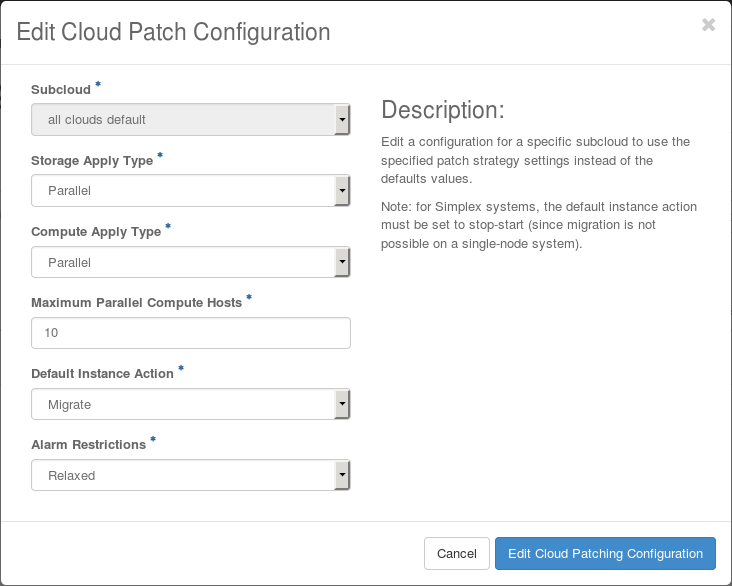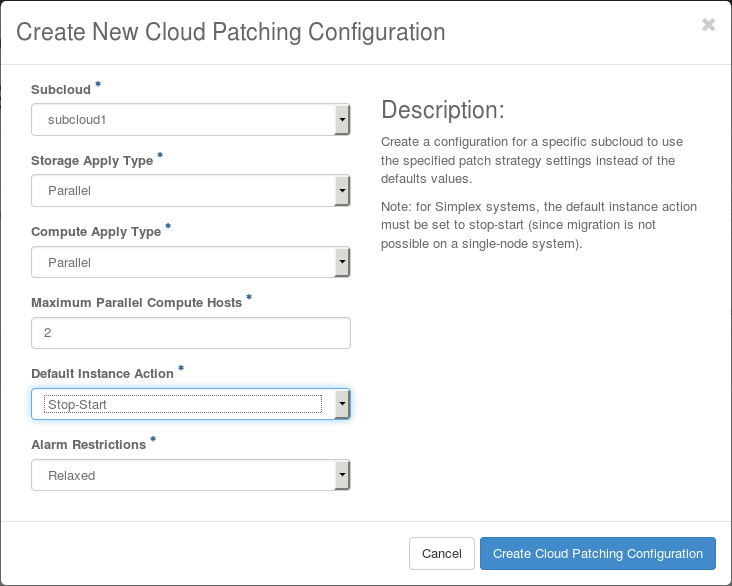Story: 2010584 Task: 48998 Change-Id: I48c2960362e3fd04f0175e74e2611b68e6b846f3 Signed-off-by: Elisamara Aoki Goncalves <elisamaraaoki.goncalves@windriver.com>
3.3 KiB
Customize the Update Configuration for Distributed Cloud Update Orchestration
You can adjust how the nodes in each subcloud are updated.
The update strategy for Update Orchestration uses separate configuration settings to control how the nodes on a given system are updated. You can adjust the settings used by default for all subclouds, and you can create custom settings for individual subclouds.
You can change the configuration settings before or after creating a update strategy for update orchestration. The settings are maintained independently.
Select the SystemController region.
Select Distributed Cloud Admin > Orchestration.
On the Orchestration page, select the Cloud Patching Configuration tab.
Take one of the following actions:
To edit the settings applicable to all subclouds by default, click Edit Configuration in the all clouds default row.
To save your changes, click Edit Cloud Patching Configuration.
To create custom settings for an individual subcloud, click Create New Cloud Patching Configuration.
In the Subcloud field, select the subcloud for the custom settings.
To save your configuration changes, click Create Cloud Patching Configuration. The new configuration is added to the list.
The following settings are available:
- Subcloud
-
This specifies the subcloud affected by the configuration. For the all clouds default configuration, this setting cannot be changed.
- Storage Apply Type
-
Parallel or Serial — determines whether storage nodes are patched in parallel or serially
- Worker Apply Type
-
Parallel or Serial — determines whether worker nodes are patched in parallel or serially
- Maximum Parallel Worker Hosts
-
This sets the maximum number of worker nodes that can be patched in parallel.
- Default Instance Action
-
Note
This parameter is only applicable to hosted application VMs with the -openstack application.
migrate or stop-start — determines whether hosted application VMs are migrated or stopped and restarted when a worker host is upgraded
- Alarm Restrictions
-
Relaxed or Strict — determines whether the orchestration is aborted for alarms that are not management-affecting.
For information about creating and applying a patch strategy, see
update-management-for-distributed-cloud.
Related information
creating-an-update-strategy-for-distributed-cloud-update-orchestration
applying-the-update-strategy-for-distributed-cloud



